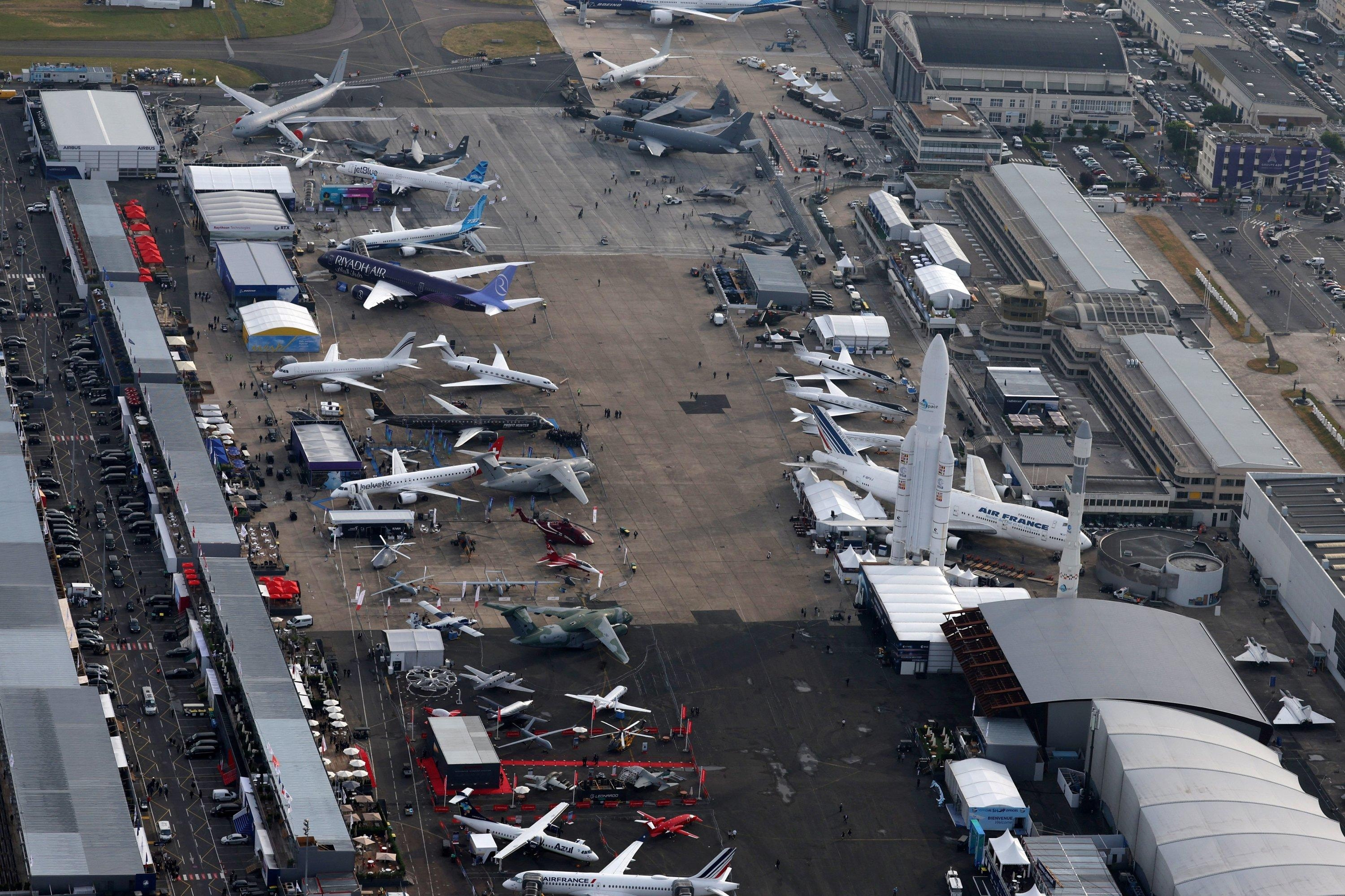エアロジニー — あなたのインテリジェントな副操縦士。
現在のトレンド
Categories
Expected Aircraft Orders at Next Week’s Paris Air Show

Expected Aircraft Orders at Next Week’s Paris Air Show
The Paris Air Show, the world’s largest event of its kind in terms of exhibitors and exhibition space, is set to return next week, attracting global attention from the aviation industry. Traditionally, the show serves as a pivotal platform for aircraft manufacturers and operators to announce new deals, ranging from firm orders to preliminary Memoranda of Understanding (MoUs). The 2023 edition set a historic benchmark with a record 1,303 aircraft orders, including 1,160 firm commitments—the highest in the event’s history.
This year, however, expectations are more restrained. Aviation consultancy IBA projects between 700 and 800 commercial aircraft orders at the 2024 show, reflecting a more cautious market environment. This tempered outlook is influenced by ongoing supply chain uncertainties and the lingering effects of recent U.S. tariffs, often referred to as "Trump tariffs," which have complicated international transactions and procurement strategies.
Market Dynamics and Analyst Insights
Dr. Stuart Hatcher, Chief Economist at IBA, anticipates that orders will emerge from a broad geographic range, with particular strength expected from the Middle East, Asia-Pacific, and Europe. The Americas and North Africa are also likely to contribute, while South America and Oceania are not expected to generate significant activity. Aircraft lessors, including prominent players such as Air Lease Corporation (ALC), are predicted to maintain their pattern of high-profile announcements at major airshows.
Hatcher emphasizes that although consumer confidence has shown signs of recovery—supported by easing geopolitical tensions and improved job security—this has limited impact on long-term aircraft orders. Delivery slots for new aircraft often extend up to eight years into the future, rendering near-term demand less influential. Instead, prevailing market uncertainties, rising costs, and declining yields may prompt airlines and lessors to prefer non-binding commitments over firm orders.
Airbus and Boeing: The Ongoing Rivalry
The competitive landscape between Airbus and Boeing remains intense. Boeing recently secured 303 new orders and achieved its 737 MAX production target, buoyed by a high-profile visit from former President Trump to the Middle East. This visit coincided with the announcement of 268 orders over just three days, deals that were likely negotiated well in advance. These developments underscore Boeing’s strategic efforts to leverage political and market momentum.
Airbus, having delivered 243 aircraft so far this year, is expected to mount a strong response at the Paris Air Show. Industry rumors suggest that several Middle Eastern carriers are considering new deals with Airbus, potentially as a counterbalance to Boeing’s recent successes.
Industry Context and Outlook
While optimism persists in the commercial aviation sector, the defense segment faces challenges. Defense budgets in both Europe and the United States are under pressure, even as demand for commercial aircraft remains robust. This divergence highlights the complex environment in which manufacturers operate, balancing strong commercial interest against uncertainty in government spending.
Although the 2024 Paris Air Show may not replicate the record-breaking order volumes of the previous year, it is still anticipated to generate significant activity. The interplay of supply chain challenges, tariff impacts, and shifting global demand will shape the announcements, with Airbus and Boeing competing for prominence. As the industry navigates these uncertainties, the show will provide critical insights into the future trajectory of global aviation.

Emirates Unveils Cabin Design for New Boeing 777X

Eighteen Years On, the Airbus A380 Remains Central to a $34 Billion Airline

How a boom in luxury airline seats is slowing down jet deliveries

Navitaire Outage Attributed to Planned Maintenance

Airbus Plans Record Delivery of 870 Aircraft in 2026

DigiYatra Debuts Outside Aviation at India AI Impact Summit

Vietnam Orders Strengthen Boeing’s Commercial Outlook

Airbus Signals Uncertainty Over Future A400M Orders

JobsOhio Awards $2 Million Grant to Hartzell Propeller for Innovation Center

Collins Aerospace Tests Sidekick Autonomy Software on YFQ-42A for U.S. Air Force CCA Program
